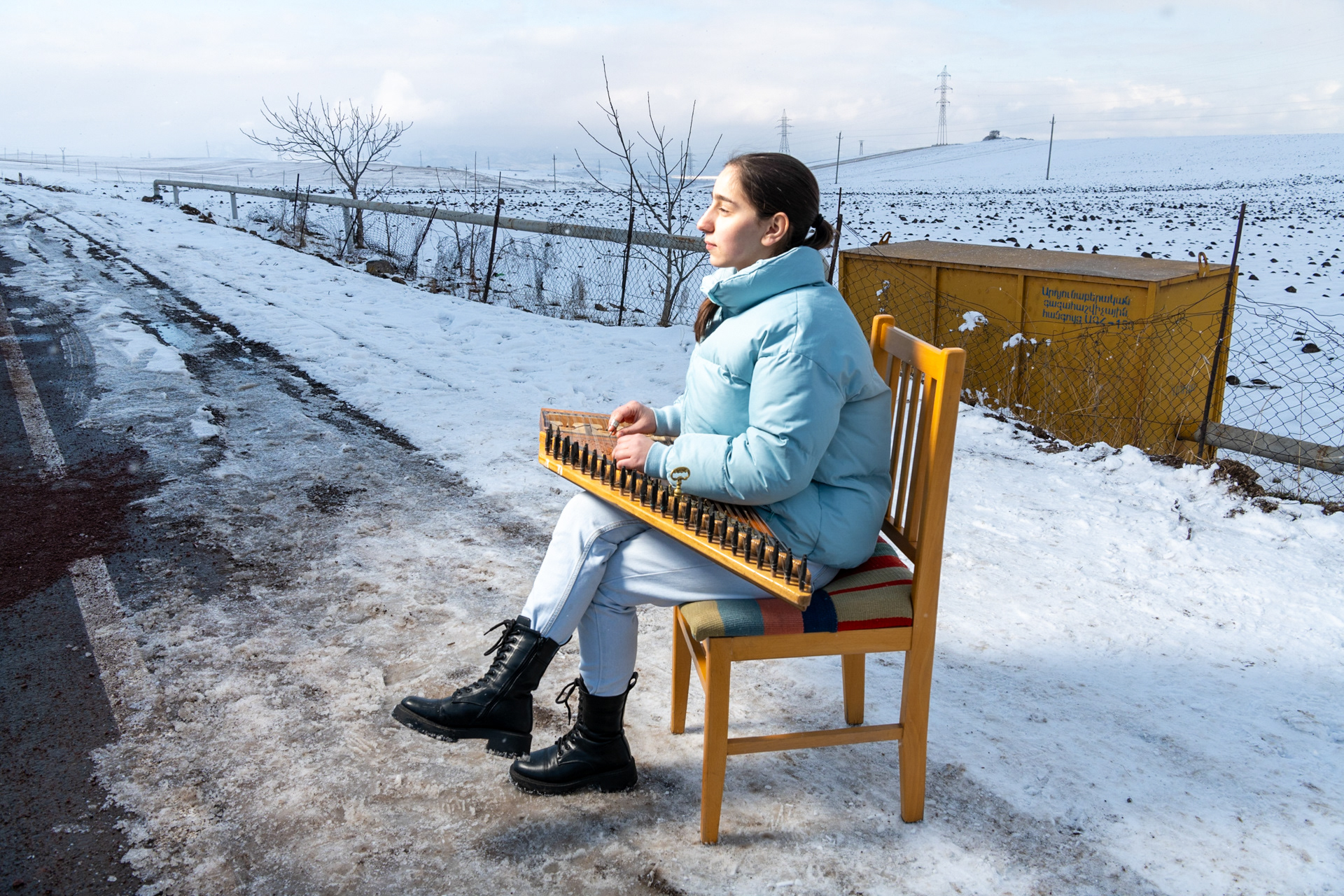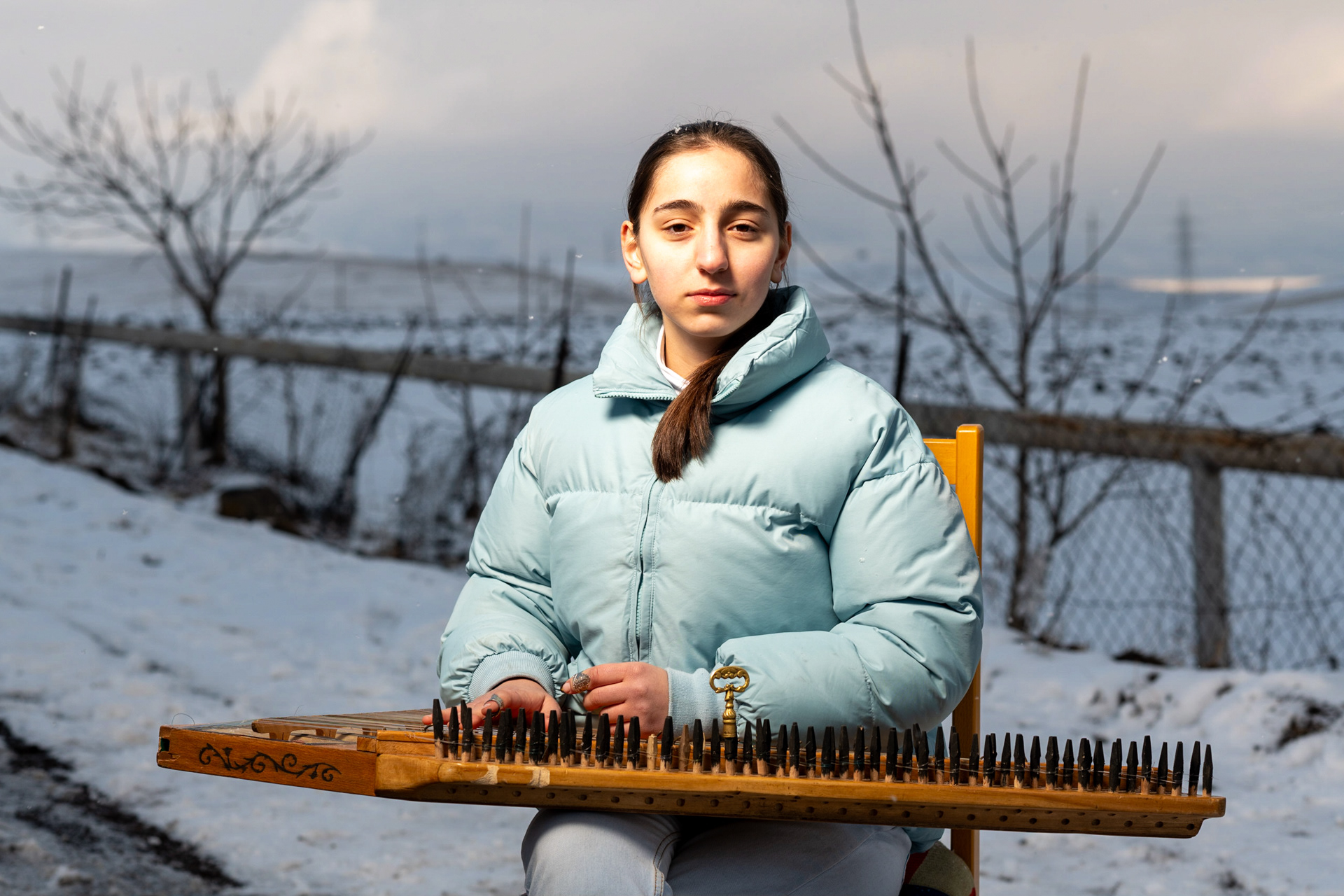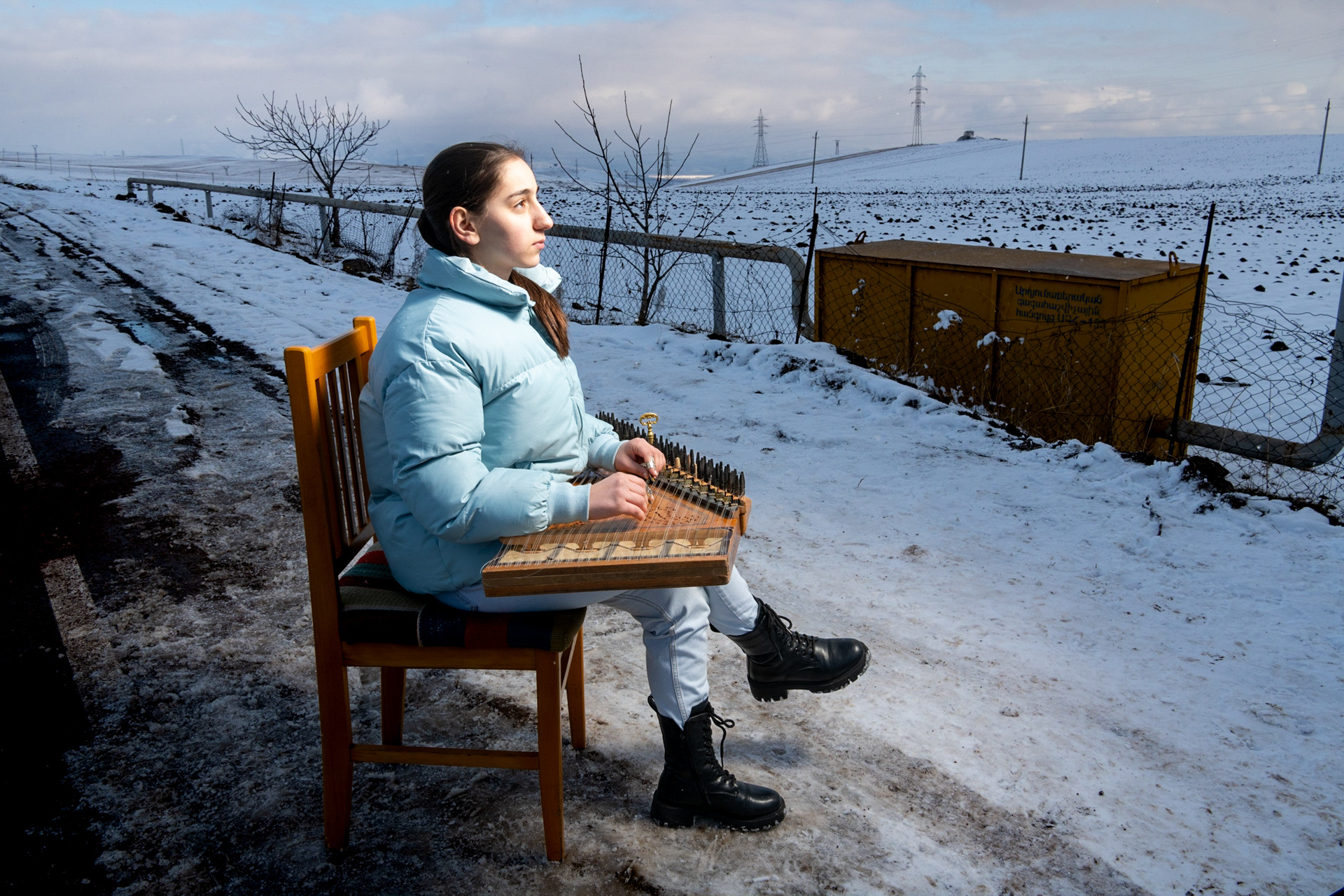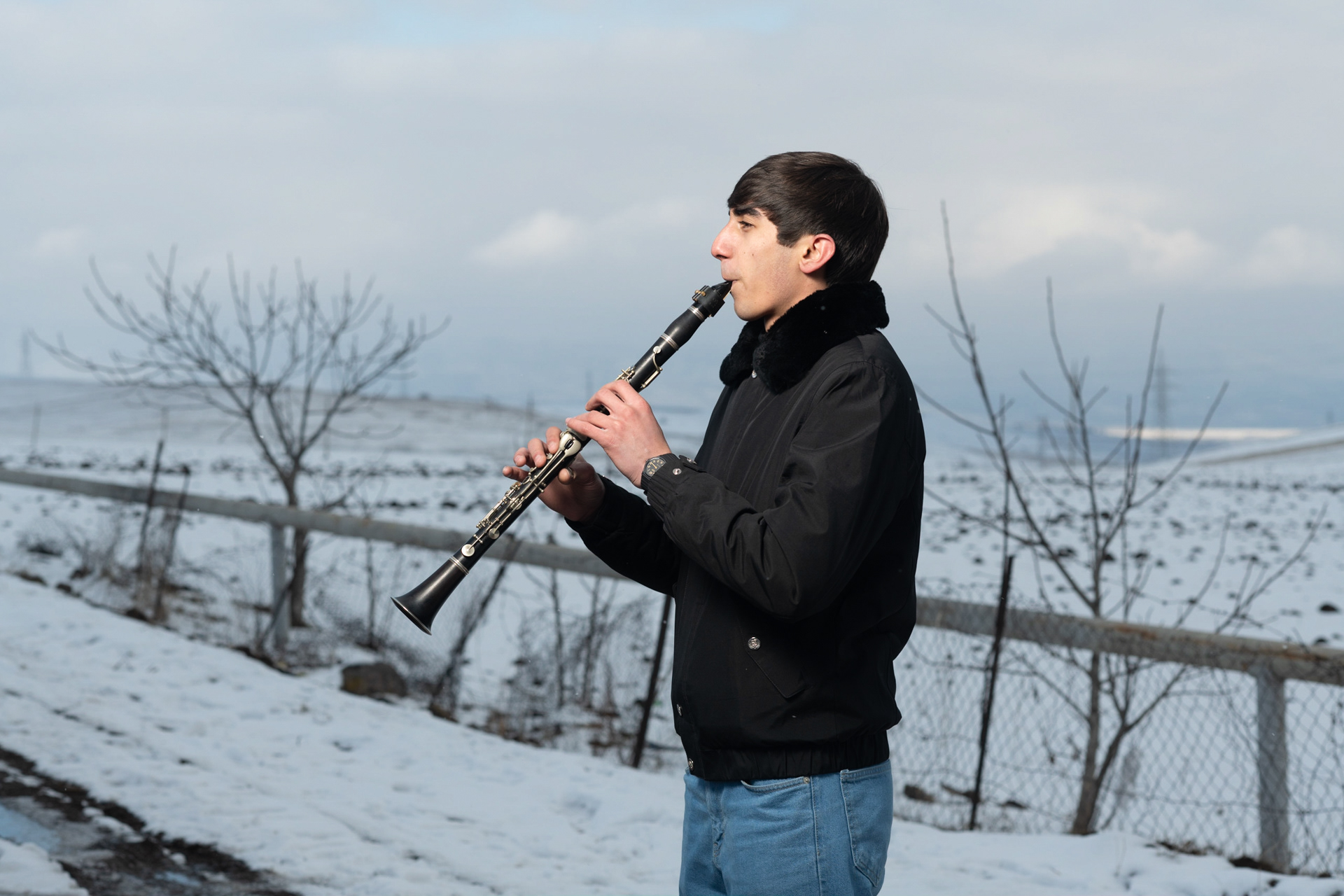
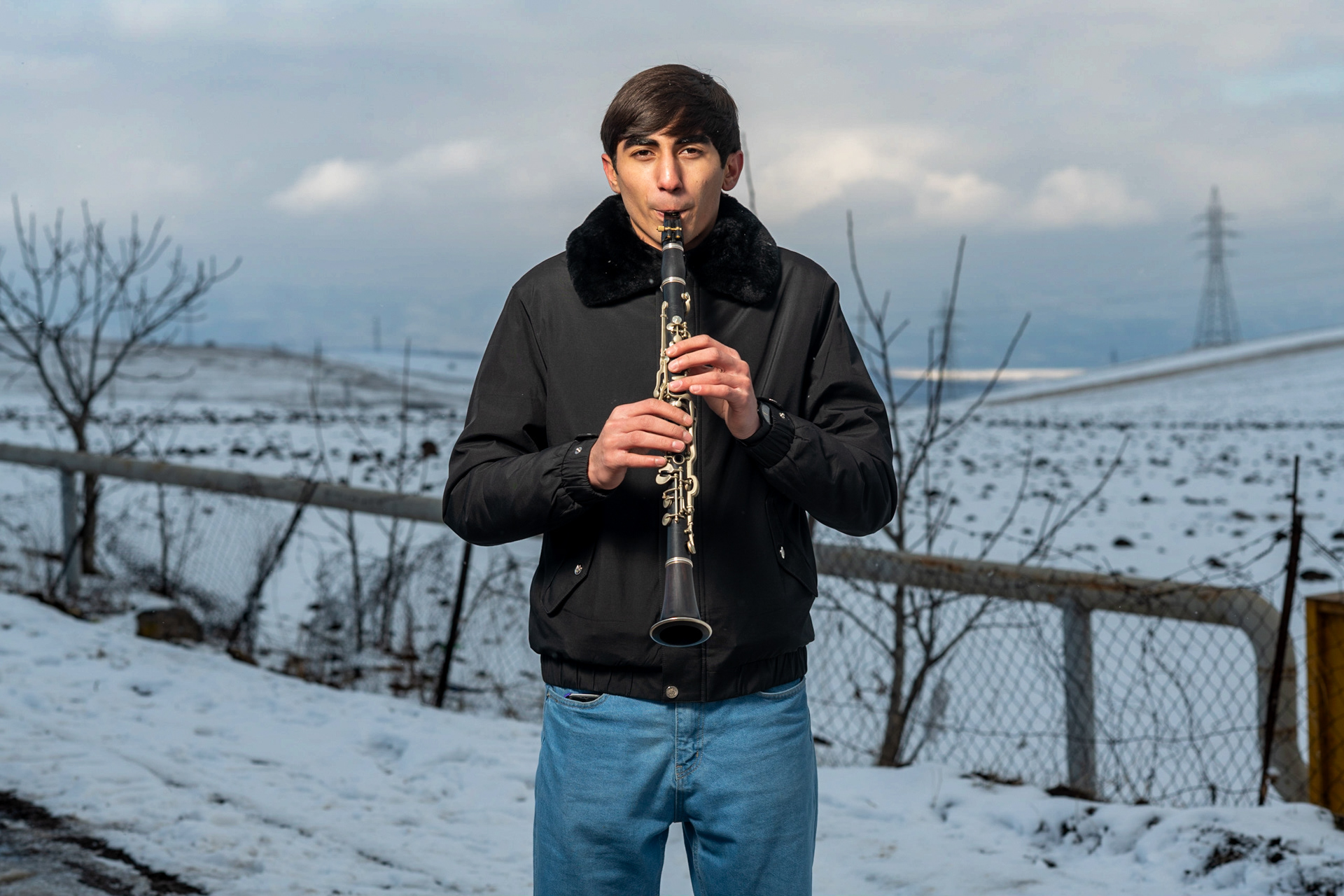
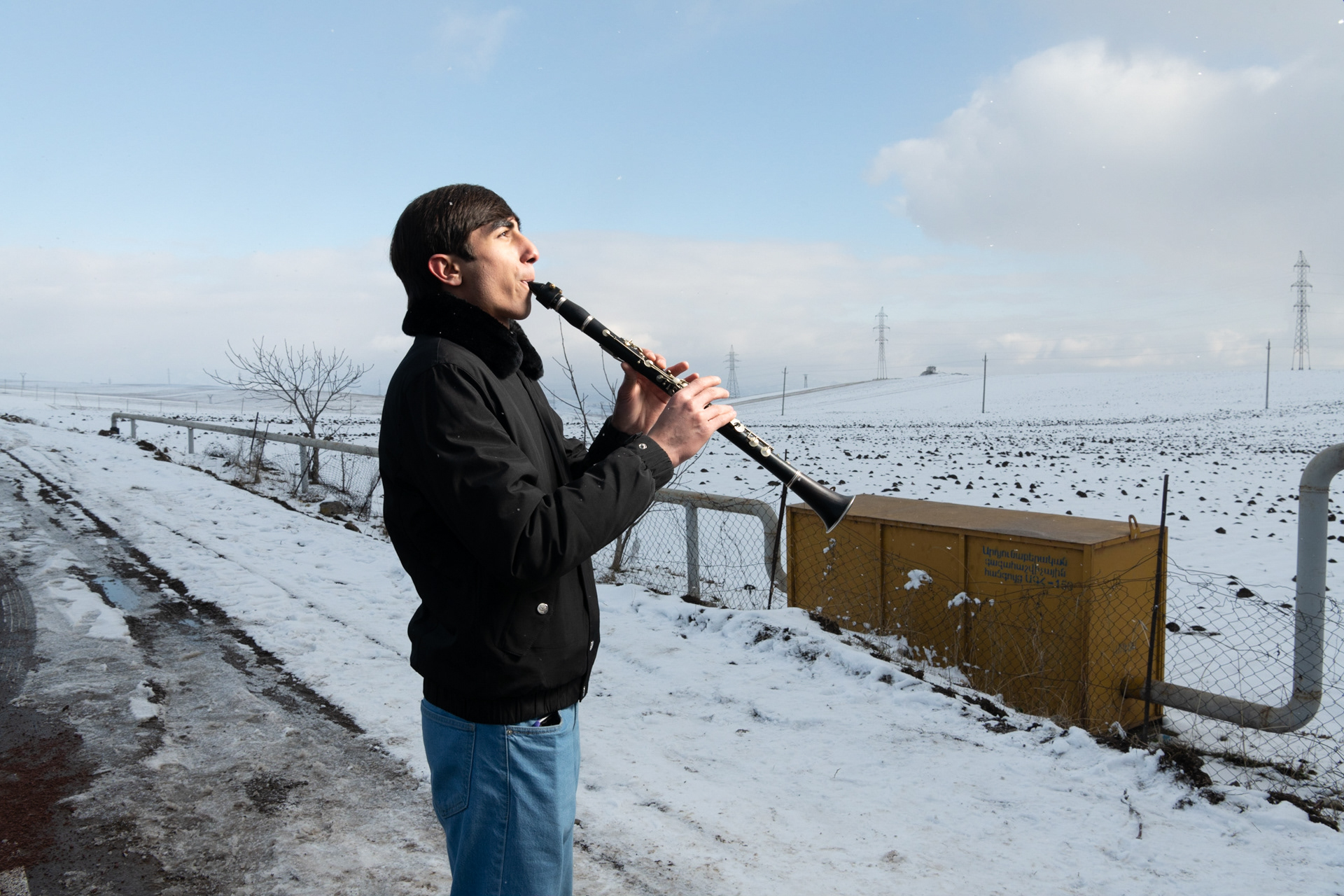
How Junior Eurovision Failed Artsakh’s Children
Lachin - A Road With Little Hope
By Sascha Klamp
Photojournalist, Film Maker & Storyteller
In the early hours of December 11, 2022, 16 teenagers and their guide, Ms Aida Gyanjumyan, set off on a five-hour bus journey from Stepanakert through the Lachin Corridor, heading north west with destination Yerevan, the capital of Armenia.
Stepanakert is the capital of Nagorno-Karabakh, an enclave of Azerbaijan which declared its independence from Azerbaijan in 1991 and has since been governed as the internationally unrecognized Republic of Artsakh. Azerbaijan continues to claim territorial rights to this land, where most of the population are ethnic Armenians. In 2020, a 44-day war with Azerbaijan resulted in Nagorno-Karabakh ceding significant territory to Azerbaijan in a peace deal brokered by Russia and signed by Armenia’s Prime Minister, Nicol Pashinyan. This deal left Artsakh Armenians’ with only one single access route to Armenia and the outside world via the Lachin Corridor, a five-kilometre wide area, controlled by Russian peacekeeping forces (said to have been once 5,000 strong, but currently reportedly down to 2,000). The Lachin Corridor is also the only route of supply into Artsakh for food and medicines. There are no air links into Artsakh.
En route, the group crossed three mountain passes before eventually setting sight on Mount Ararat to their left just outside Yerevan. The plateau surrounding Mount Ararat, the landing place of Noah’s Arc, was once part of Armenians’ ancestral land which reached deep into Anatolia, part of modern day Turkey. In 1915, the Turks massacred over one million Armenians and many died on forced marches through to the Syrian desert. Whilst many governments around the world, including the United States of America, recognise the Armenian Genocide, the U.K. does not still to this day. The United Kingdom’s significant oil and gas interests in the region most certainly have something to do with that.
Eurovision
On this occasion, Aida who is an Advisor to Nagorno-Karabakh’s Minister for Education, Science, Culture, and Sport, had selected 16 boys and girls between the ages 10 and 19 to join her to attend the Junior Eurovision event in the capital of Armenia, on the invitation of Hovhannes Movsisyan of Armenia’s 1st state television channel.
Armenia was hosting the 2022 Junior Eurovision Song Contest, as the winner of the previous year’s event, with the song Qami-Qami and their artist Marlena. This year, Armenia was represented by 14-year-old singer, Nare, with a catchy song , ‘Dance!’. It is a modern upbeat tune designed to entertain rather than to change the world.
But it did not need to change the world. The world turned upside down for these sixteen teenagers as they tried to return to their homes after the event.
Thinking back, Aida explains that she had had a difficult time selecting amongst applicants who were all willing to support Nare at the glitzy event. In the end, she chose the children on merit in the hope that the world recognises the many talents that come out of Artsakh. She picked children who had excelled across different disciplines ranging from music, art and academics.
Among the group, there is Alex (17), who plays the clarinet at a very high standard. There is also Aren (15), who plays the saxophone. He participated in competitions in Etchmiadzin (Ejmiatsin), the mother church of the Armenian Apostolic Church, and came 1st, earning him a spot on the Eurovision bus. And there is Astghik (13), who plays the Qanun (a traditional Armenian string instrument). She participated in events in Gyumri, Yerevan and Stepanakert, but also performed internationally, in Lebanon and Greece. There are many other talents, a judo champion, a history and geography student who won competitions regionally and nationally. Aida is right, Artsakh does have many talents to be proud of.
For English subtitles, please enable in settings.
Since the 44-day war in 2020 and the resulting peace treaty, “these children have been going to school, seeing the Azerbaijani military posts and their flags from their classrooms” says Aida. She says that it is her ‘mission, as a pedagogue, as an Armenian woman, to ensure that, as much as possible, the children of Artsakh should live the same way as the children in the rest of the world.’
The Junior Eurovision event was a success for the host nation. Not only was Armenia able to pull off a fantastic show under the motto “Spin the Magic”, but Armenia’s artist, Nare, came close second, with 180 points.
The French performer Lissandro won the event with 203 points for his performance of Oh Maman! France is traditionally a strong supporter of Armenian interests, and, following the Armenian Genocide of 1915, became home to the largest Armenian population in the EU, only dwarfed by the Armenian diaspora in the US. Losing to a friendly nation is bittersweet.
Many Armenians think that Nare probably could have won but there is, arguably, an interest for the Junior Eurovision party to move on to the next host country. So far only Poland has managed to win two years in a row, in 2019 and 2020.
Nare can be proud of what she has achieved. Her song has been watched over 2.4 million times on YouTube making her a rising star. Her nearly 40,000 Instagram followers are keen to receive any new images she posts or comments she makes. It is truly a young person’s world.
However, she is very grounded at such a young age. She is aware of the heavy responsibility representing her motherland and all the pressure that comes with it. Armenia needs those types of events to showcase itself to the rest of Europe. ‘I was feeling a huge responsibility because I was the only person, the one person, who was going to represent Armenia in front of the whole world, which means I was the whole Armenia myself at that moment. I had to do everything to keep the honour of both Armenians and Armenia, which I think I was successful at.’
She keeps her plans for the future close to her chest. Her manager Grigor Kyokchyan most certainly is planning her next steps. There is not a hint of whether there will be an album or a tour coming up. But her knowing smile tells us that we should be watching her. Long-term, Nare herself wants to be a doctor, a solid fallback option should her music career stall.
For the sixteen teens, the event was simply an incredible experience. Their excitement is obvious. They all affirm that they will treasure this trip forever. They are all also proud of Nare’s performance. There is a hint of regret that a group photo with Nare following the event in Yerevan did not materialize. It was simply too busy and the crowds too frantic to get Nare’s attention. Aida regrets not having pre-arranged this photoshoot with Armenian TV1 manager Hovhannes in advance.
Turn of Events
The morning after the event, the group set off back home still buzzing with adrenaline. Vladimir (17) says that they ‘were setting off to Stepanakert, full of joy.’
It was this journey home which would eventually turn their current lives upside down. About three hours into the journey, just outside Yeghegnadzor, a phone call reached Aida, informing her that the Lachin Corridor, which they would need to travel along to get home, was blocked. At this point, they did not worry too much. Temporary road blocks had been set up by the Azeri side previously, but never lasted long. They continued their journey to Goris, a town in the southern Armenian province of Syunik, the starting point of the Lachin Corridor and a geopolitically important region for Armenia.
Reaching Goris, Aida decided to deal with essential care first, feeding the hungry youngsters. They were greeted by the Deputy Mayor of the town, Irina Yolyan. She suggested they should make their way to Mirhav Hotel.
The children settled into their allocated rooms, many asking when their journey back home would continue. Some worried that they would need to get up in the middle of the night to travel on. As a pedagogue and psychologist Aida is trained to deal with trauma. She reassured the kids that they would not continue in the night, even if the border were to open. She suggested they should have a good breakfast in the morning and then proceed with their journey.
Mirhav is a picturesque boutique hotel that during summer months hosts regional and international travelers, many of which are attracted by the region’s excellent hiking conditions. Goris sits in a valley surrounded by 2,000 - 3,000 metre high mountain ranges.
The idyllic situation is misleading, however, as to two sides the Azerbaijani forces have taken position and are watching every move of the Armenian military. The other side’s hostility is an ever present feature that the inhabitants of Goris are used to living with. On Orthodox Christmas Day which falls on January 7th, a fire can be seen, stretching along one of the mountain ranges. No doubt a ’gift’ facilitated by Azerbaijani forces, reminding the Goris community of their presence. (see images) In Goris, however, this did not cause any major anxiety.
The following day, uncertainty for the children continued. The official narrative from the Azerbaijani side was that some ‘eco-activists’ had blocked the road on grounds of environmental matters and demanded unrestricted access to certain mining assets. Unofficially, however, Armenians were skeptical and at this point already considered this a cynical spin by Azerbaijan’s President Ilham Aliyev, to disguise yet another hostile action against the people of Artsakh and Armenia in general.
Aliyev is known to most Europeans as Azerbaijan’s leader, inking a recent gas supply deal with Europe to replace supply from Russia, and thereby saving Europe in its hour of need. It has, however, been suggested that this gas deal has merely substituted one pariah state supplier for another. Aliyev is known to the international community as an authoritarian leader whose deputy Vice President is, very tellingly, his wife. First Lady, Mehriban Aliyeva, is the current and first ever VP, a role created for her in a move that further consolidates the Aliyev’s family stranglehold over Azerbaijan's rule.
The jury remains divided whether this gas deal truly highlights the best of Europe. Ursula von der Leyen, President of the EU Commission, is likely to face the questions of history when all is said and done in Ukraine. As Aida put it: ‘Are oil and gas more valuable than the life of a child? Is this the civilized world? The 21st century?’ and she continues, ‘Is it possible in the 21st century, to lock-up a whole nation and starve its people to death? Is it possible in the 21st century? This is the shame of the whole of humanity. No matter how many times I, as a pedagogue, talk about democracy in high school, it is all a lie, because the children feel it now on their own skin.’
Back in Goris, the teenagers continued to be subjected to uncertainty. Days passed with no material progress. New Year brought new hopes and a rumour, that the corridor may open temporarily to allow medical and food supplies to enter Artsakh. But this remained no more than a rumour. More days came and went. A potential delegation planned by the International Red Cross did not materialize and more patience was yet required. As local temperatures dropped to -16C, we learned that the “eco-activists” were replaced by Azerbaijani soldiers. At this point, it became blatantly obvious that the true motives of the blockade had nothing to do with “eco-activism”.
The kids continued to stay at Mirhav hotel with little to distract them bar the daily phone contact with their families. Whilst the parents worried about their kids, the youngsters were fully aware that their position, as bad as it may have seemed, was the safer one. At the time of our stay in Goris, a month had passed with no access line allowed into Artsakh, to ensure the estimated 120,000 residents of Artsakh have sufficient food and medical supplies during the harsh winter months. To make matters worse, at some point during this time, gas supply was cut off by Azerbaijan for three days straight, and Azerbaijani authorities actively prevented the overhead powerline from being repaired, leading to daily power outages inside Artsakh.
To this day, the international community remains relatively silent, with only a handful of media reports finding their way into the mainstream more recently. There have been a few demands from some countries’ governments (US, UK, France) for Azerbaijan to open the Lachin Corridor, but these voices lack assertiveness.
Aliyev knows that the international community is distracted with Ukraine. Russia appears to yield little support, despite being signatory to the Collective Security Treaty (a multi-lateral defense treaty including Russia and Armenia). In February 2022, Russia de-facto became a ‘hostile’ state in the eyes of the Western world, distracting and alienating Putin and unfortunately weakening Russia’s peacekeeping role in the South-Caucasus.
In Artsakh, people are not dying yet. Nor has either side declared war at this stage. The hands of the UN and UNICEF are tied until international observers give clear instructions.
Meanwhile, Vladimir, one of the boys in the stranded group, is calling his parents while we are there. It is Day 31 of the blockade, exactly one month since their forced stay at Mirhav Hotel. Despite the odds, the spirit is surprisingly high. The group have settled into a routine and Aida ensures that cultural activities are planned out ahead and group games in the evening ease the pain and divert attention for a while away from the challenges they are facing.
Uniting Nare with her fans
In Yerevan, I manage to convince Grigor, Nare’s manager, to allow Nare to come to Goris and meet her stranded fans. They need her.
At first he is skeptical. A foreigner suggesting this idea appears far-fetched to him. I explain that my intention is to draw international attention to the children’s situation and Nare’s story could enable this. We intend to film the journey, also with the intention to release a short film that shows Nare and the story of the children of Artsakh to a wider European audience. A film “from Armenia’s youth to the youth of Junior Eurovision”. Nare’s platform may give the narrative a different dimension, one away from politics and focused on the human stories behind the conflict. Grigor agrees and waives any fees. He supports the concept and loves the idea. He checks with Nare’s mother, Anna, who equally believes it is a worthy cause.
On our four-hour journey to Goris, we chat with Nare. She is reflective and has a young but mature head on her shoulders. ‘I realized that [...] the role of these children is even bigger, because they are the children who are not able to go back to their families. [..] I understand that we need to make it clearer to Europe about their situation here. So that they understand how the children live here without their parents. That we, together [...], try to convince the world, to explain to them that Azerbaijan is carrying out aggression against Armenia and that they do not allow these children to return to Artsakh, keeping them far from their families for so long.”
In Goris, we facilitate a meet and greet. The kids are noticeably nervous. Having seen the future star on stage to now potentially breaking bread with Nare is a twist they had not expected. Giggles are audible.
After the initial excitement settles, a group lunch eases everyone’s nerves. It turns out that one of the girls in the stranded group, Ani, had also been a potential candidate to represent Armenia at Junior Eurovision. She takes the honor introducing Nare to her new impromptu family.
Nare does not get away without showing off her performing skills. Over and over, she gives an audition of the opening sequence of her song and its theme “Dance”. Duets follow, everyone has a go. They move on to other songs, a Cappella and with support of a little portable Bluetooth speaker. And of course, teenagers do what teenagers do best: take selfies!
They have a thoroughly enjoyable time. Aida’s mission, with a little help from us, is accomplished. She gets more than just one group photo. She gets 48 hours of interaction with Nare, alleviating the pain and distracting her teenage charges from their current impasse.
We use the quiet moments during the day to interview some of the children, and also conduct a formal chat with Nare.
These interviews are emotional but demonstrate their fighting spirit. It is clear that these teenagers want to return home at the first available opportunity, even if the border opens only temporarily to allow them back inside. They are fully aware that going into Artsakh means that they will go into the heart of the conflict. Once inside Artsakh, they will also be subjected to Azerbaijan’s blockade.
At this point, there is no confirmation whether food and medical supplies can finally enter Artsakh. The international community's voices are slowly getting louder. Russia’s Foreign Minister Lavrov is willing to send a delegation to Armenia and Azerbaijan to facilitate talks.
But is Aliyev listening or will he continue to exert power over the region, de facto presiding over another Genocide?
We are back in the UK on January 15th. Late on January 17th, the news reaches us that the kids may be allowed passage through the Lachin Corridor to allow them to go home. We are sent distressing footage filmed during their return journey from inside the bus, allegedly showing masked Azeris entering the vehicle and taking close up videos of each individual child, instilling terror and intimidation, with one of the children reportedly fainting as a result.
Later phone footage shows scenes of joy when they reach Stepanakert and are finally reunited with their families. We know that this is likely to be a short-lived reprieve. The blockade of Artsakh continues to this day.
